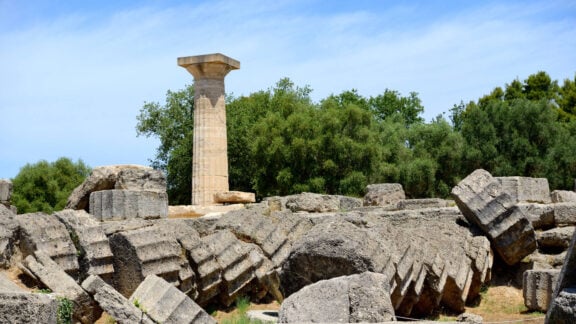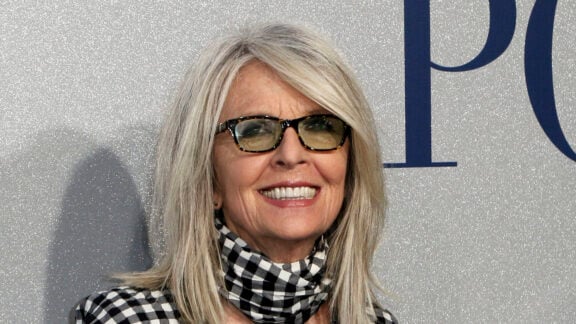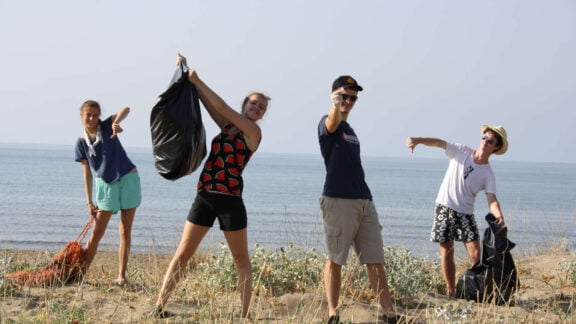From 1987, when Don Dunstan chaired the first Antipodes committee and chose to go ahead with the street festival, director of the Greek Centre and Lonsdale Street Festival Jorge Menidis recognises that “it’s a different world now”.
For many of Melbourne’s Greek inhabitants, Lonsdale Street is not what it once was, with many iconic Greek cafes, bars, clubs and stores having closed their doors.
But Mr Menidis says if you look closer, you’ll see a mini-renaissance taking shape.
“We all know what’s happened to Lonsdale Street; it’s not the fireplace it once was, but over the last two years there’s been nine new Greek businesses open up in the precinct in Melbourne and there’s two more coming, so that’s exciting,” he said during an interview with Neos Kosmos.
And while the vast majority of people who identify as being Greek in Australia are now third or fourth generation, the festival appears to be as relevant as ever, with the annual number of attendees speaking for itself, standing between 80,000-100,000.
From a distance the festival appears to have continued down the same path over the 29 years; food stalls, Greek music and dancing, and of course, the CBD location.
But Mr Menidis says the changes are all in the details.
“People may not see it, but quite frankly, the festival has changed quite dramatically on a number of levels.
“Sure, there are still dance groups, stallholders, and what have you. But fundamentally the approach to the festival itself, the nature of the performances, the production values and sentiments are vastly different from where they were,” he said.
Aside from the considerable increase in expenses over the years associated with staging an event of this calibre, the director says the festival now has a vastly larger scope and format, and the execution is a lot more professional.
“The festival is basically coming from the ideas of a fairly young working committee, which is bringing lots of interesting things to the table,” he said.
This year the street will come alive with three stages, and while there will be a number of dancing groups accompanied by traditional music, organisers are mixing things up with the addition of some 15 bands invited to perform a broad range of music throughout the day so that there’s something for everyone.
Food has always been at the centre of the event, but for the past few years the program has been taken up a notch.
The food selection is now curated, with stallholders often invited to take part, to give festivalgoers more variety, with a focus on tasty Greek and Cypriot street foods.
But don’t fret, Mr Menidis promises that all your festival favourites will still be there!
For the fourth year running, there will also be a number of cooking demonstrations with a broader range than ever before. Such additions to the event will see the set-up altered this year to give the street more of an authentic Greek feel.
“Where we normally have all the rides, we’ve extended our stalls all the way to Swanston Street, so it’s a longer offering. We’ve removed as many of the stalls from the middle of the street as we can and put tables and chairs, so people can sit down and enjoy an afternoon and it becomes like a plateia for the weekend,” Mr Menidis explained.
While the festival continues to be a great opportunity for people of all ages to engage with their Greek heritage, a big part of the event, significantly benefited by its central location, is that a huge number of non-Greeks get involved, both as stallholders and volunteers.
“There are thousands who come to Lonsdale Street and the vast majority of them aren’t Greek. They’re there to have a look at what the Greek Festival’s about. You look at the entrance for competitions like Zorba ‘Til You Drop and there’s quite a number of people there who aren’t Greek, who are rehearsing,” he says.
“It’s a festival celebrating being Greek to an extent, but it’s in the middle of Melbourne in a cosmopolitan and multicultural city. So it’s important that we appeal to everyone.”
Though the street festival is well received each year, as the event turns 29, the director admits there is often great expectation placed upon the Antipodes to be a bigger than it ultimately is.
“For some reason, people put the burden on a street festival as a panacea to all things cultural; that somehow a street festival is meant to convey every aspect of Greek culture to the world, when all it really is, is a party. It’s a stamp on the footprint of the city to say we’re here, and we’re happy to be here, and we’re proud of who we are. It’s not meant to be a critically reviewed event,” said Mr Menidis.
“At the end of the day, all we want is for people to come into town and have a good time.”









